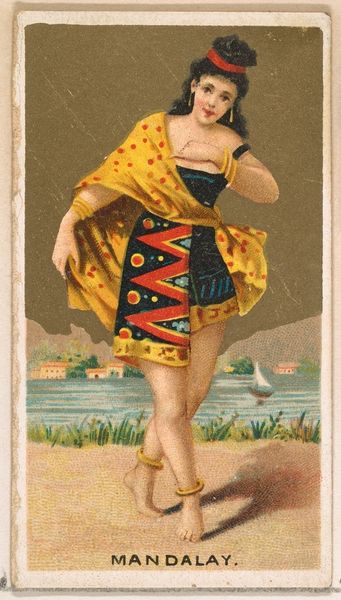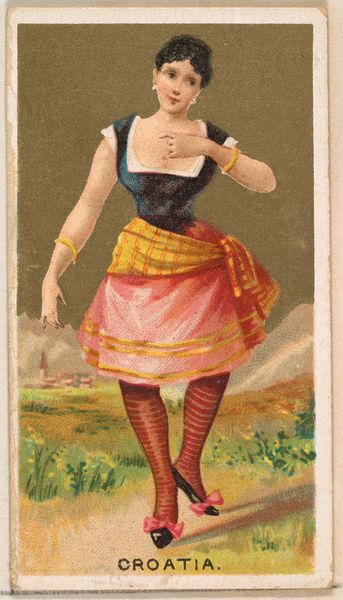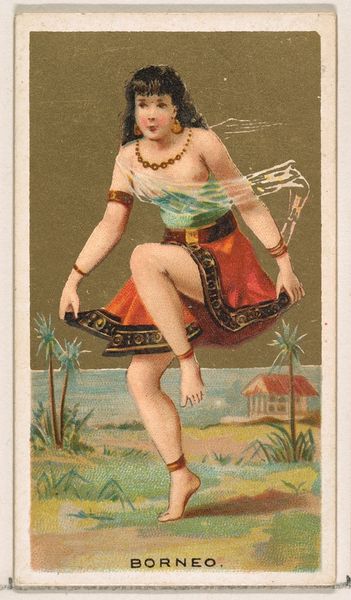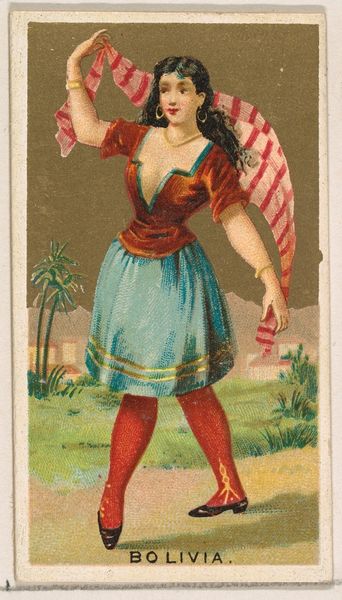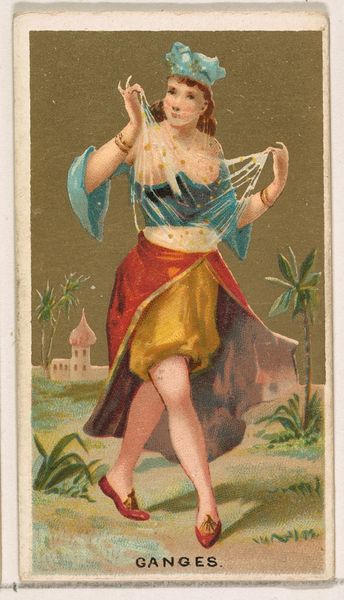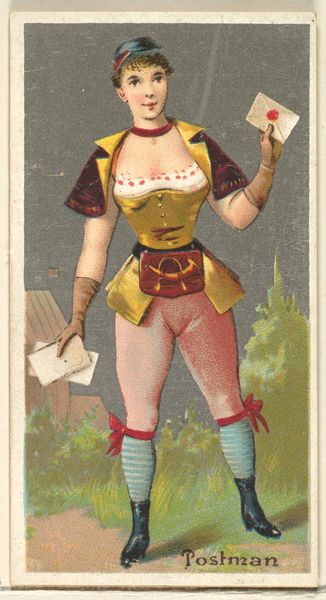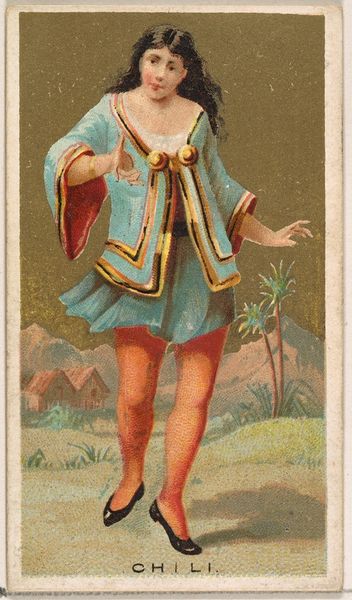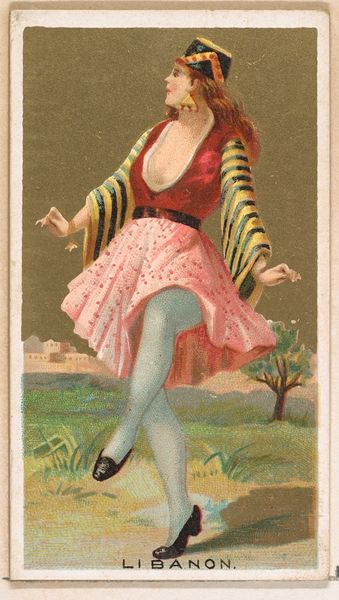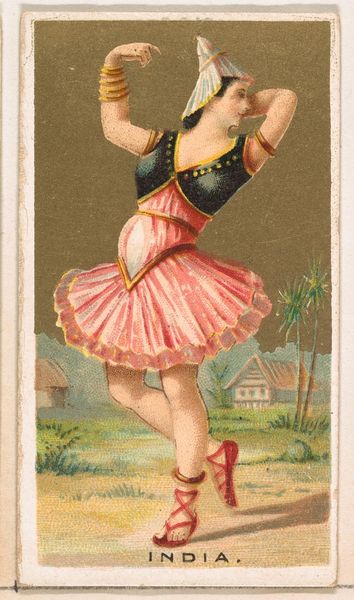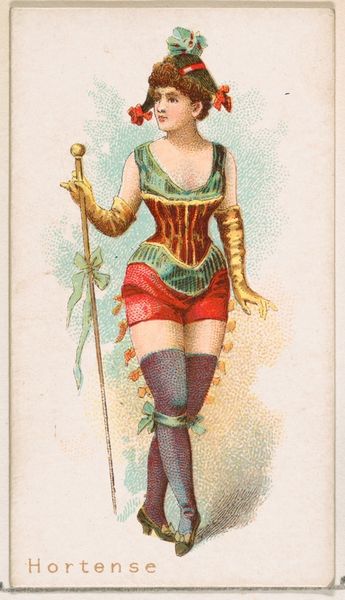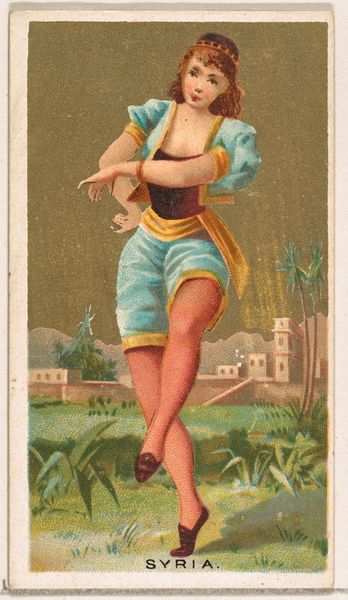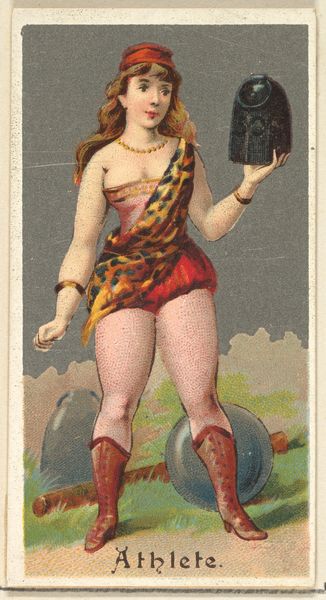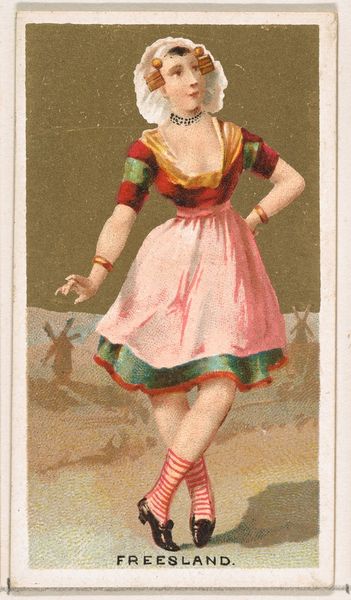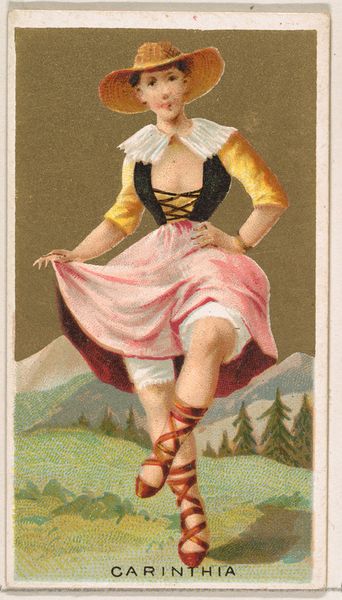
Java, from the Dancing Girls of the World series (N185) issued by Wm. S. Kimball & Co. 1889
0:00
0:00
print, poster
#
portrait
# print
#
watercolour illustration
#
poster
#
portrait art
#
watercolor
Dimensions: Sheet: 2 11/16 × 1 1/2 in. (6.8 × 3.8 cm)
Copyright: Public Domain
Curator: Here we have "Java," one of the Dancing Girls of the World, a series created around 1889 by William S. Kimball & Company. This small chromolithograph print—originally a cigarette card—offers a glimpse into late 19th-century Orientalism. Editor: It strikes me as a romanticized vision of exotic lands. The dancer is lovely, of course, but something about her pose and costume feels theatrical, as though she's performing for an imagined audience. Curator: Absolutely. These cards weren't really about accurate cultural representation; they were about creating alluring images to sell tobacco products. It fed into a broader societal fascination with the "Orient" at the time, constructing these images within a colonial gaze. Editor: I can see the layers of interpretation. The artist has employed what might seem like Eastern motifs in the landscape and dancer's adornments, but her features are European. Her gestures evoke grace but also restraint, which adds a layer of complexity. Is she empowered, or merely objectified? Curator: The iconography is definitely complicated by its purpose. The dance itself becomes a symbol of exoticism, simplified for consumption. Yet, there's also a Japonisme influence at play—the flat planes of color, the stylized landscape in the background. Editor: I see what you mean. So it’s a cultural melting pot viewed through the lens of commercialism. What lingers with me is this odd mixture of allure and melancholy. Curator: It's a potent little artifact, isn't it? It encapsulates the era's complex relationship with the wider world. Editor: Definitely. A reminder that images, even small ones, are always charged with meaning.
Comments
No comments
Be the first to comment and join the conversation on the ultimate creative platform.
